Post by Nathalie Rios Carreon, undergraduate in Psychology pursuing an Interdisciplinary Neuroscience minor at Portland State University.
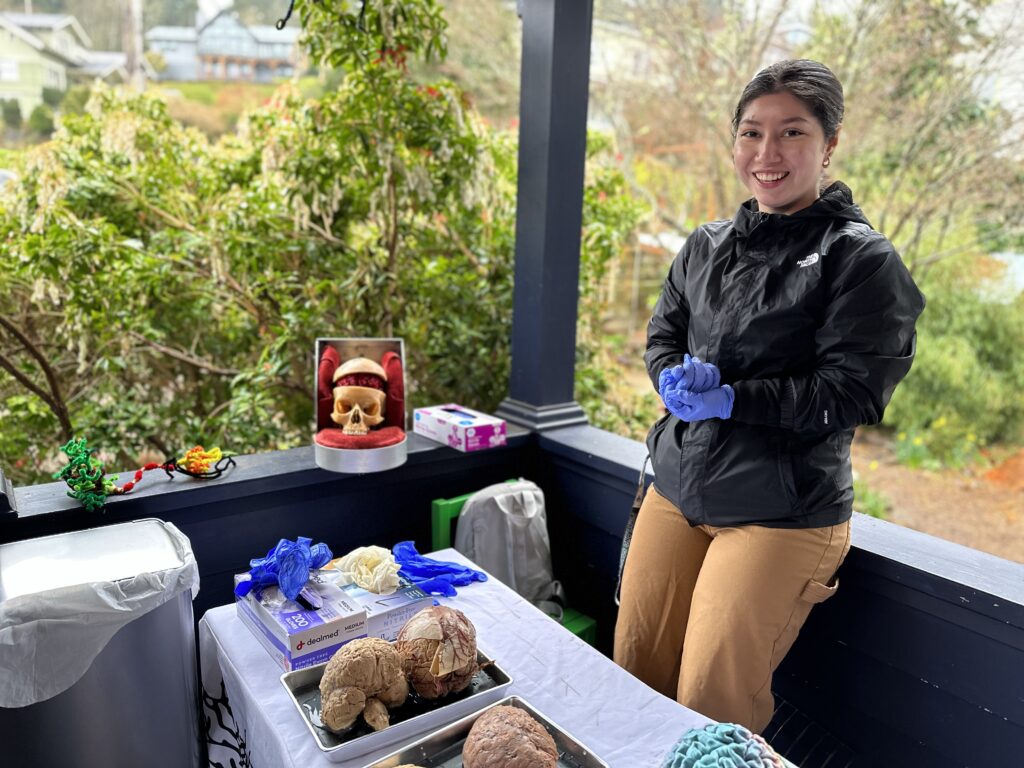
I am a senior at Portland State University (PSU). I transferred to PSU from Chemeketa Community College (CCC). I went to CCC right after graduating from Woodburn High School. I was there on a soccer scholarship which covered all expenses and allowed me to continue my education.
I grew up in Woodburn, Oregon where the majority of the population is Hispanic. I am also an anchor baby. My parents came to the United States when they found out they were pregnant. I’m extremely grateful for the sacrifices they have made. Everything I do is for them.

LEARN MORE: Mural at Woodburn Independent office nearly completed after delay
LEARN MORE: Woodburn’s New Mural Showcases City’s Diversity And History
LEARN MORE: Woodburn (Oregon Encyclopedia)
Because I come from a town with so many immigrants, most of the people I know are bilingual. My parents came to the US without knowing English, but learned throughout the years. I went to school without knowing English and learned even more quickly.
I didn’t realize how useful it was knowing more than one language until I left Woodburn.
Outreach at Hazelbrook
There is a bilingual school in Tualatin called Hazelbrook Middle School. We went to visit Hazelbrook to talk about the benefits of being bilingual or multilingual with the students.
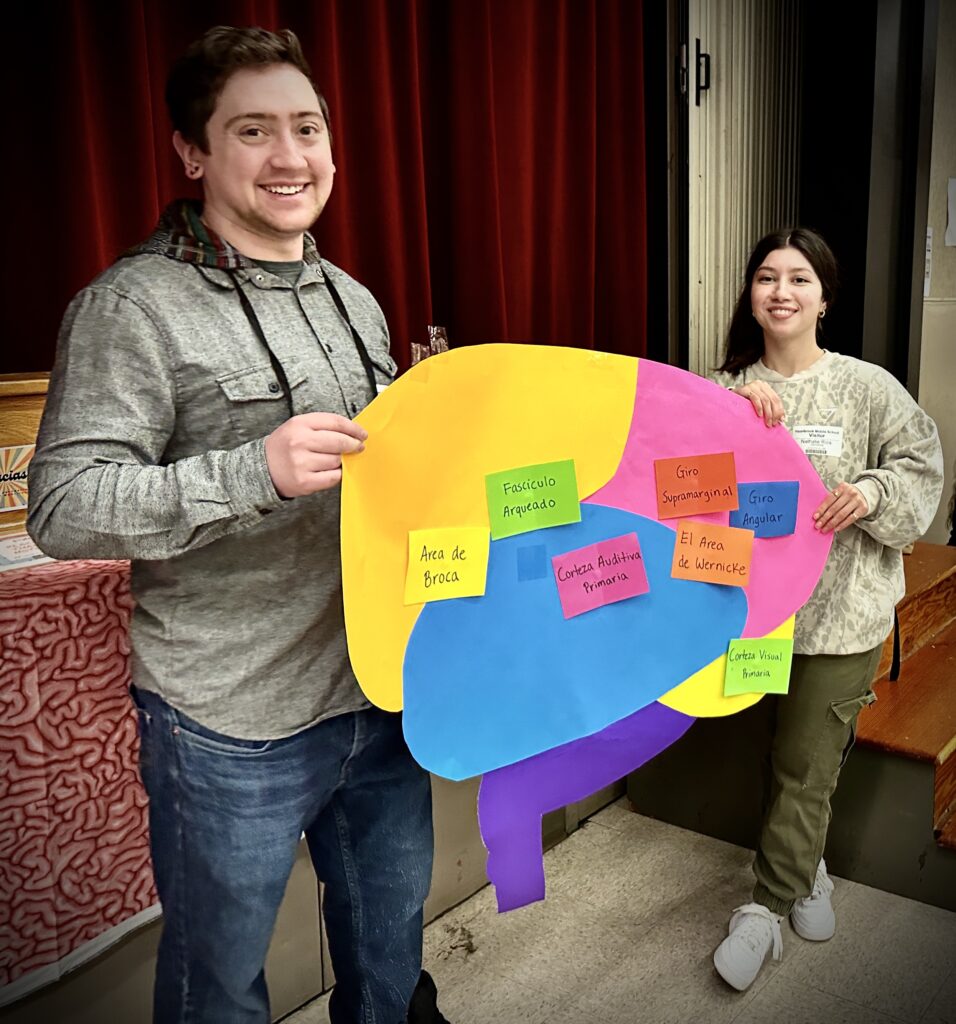
Students at Hazelbrook asked us lots of questions! They also held and touched some REAL brains, and they learned how to build neurons out of pipe cleaners en Español.
LEARN MORE: Pipe Cleaner Brain Cells!
NW Noggin volunteers visit schools to show everyone how cool brains are, no matter how stinky they might smell!

We also emphasize how important it is to take care of your brain, and it turns out that learning another language is a great way to take care of and improve your noggin.
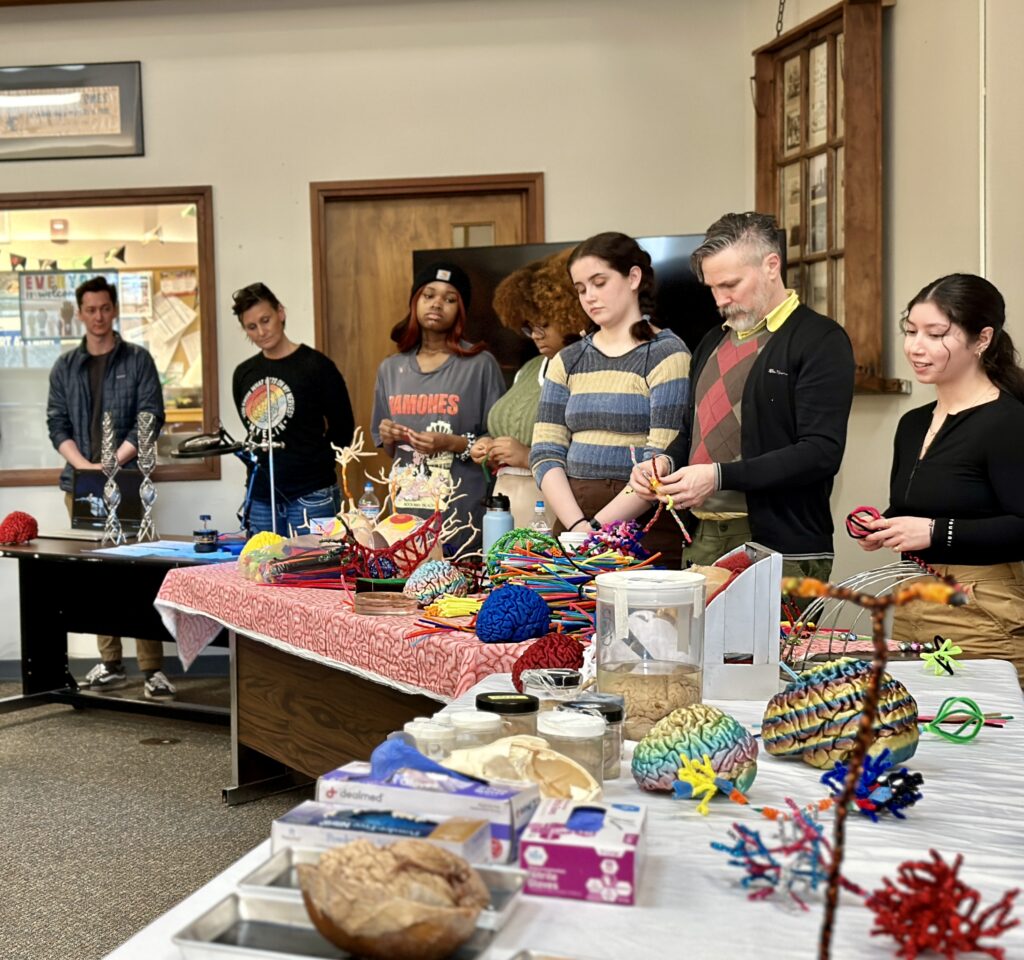
Brains change
There are many benefits to trying new things – and learning another language!
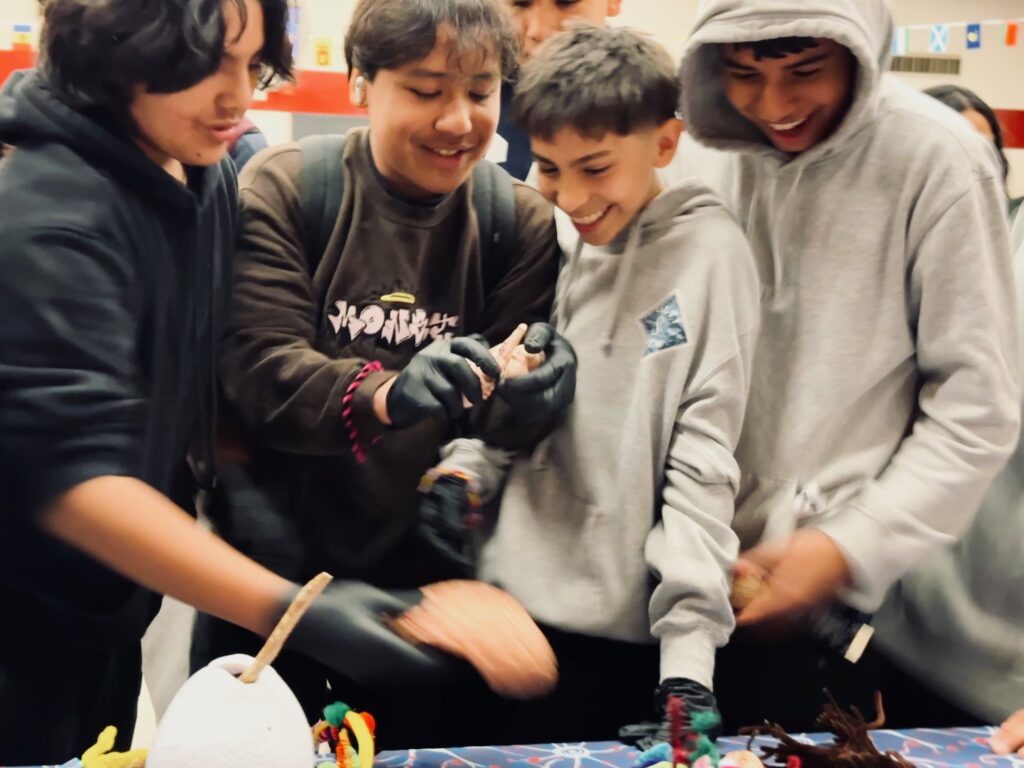
The brain changes and makes new connections as we learn to do more things. And the more often we do those things, the more precise and skilled these networks become. The brain is like a muscle. The more you use it, the stronger it gets. That’s why it’s important to keep learning throughout life.

Even small things matter like taking a different route back home every once in a while, brushing your teeth with your non-dominant hand, doing a crossword puzzle – and learning another tongue!
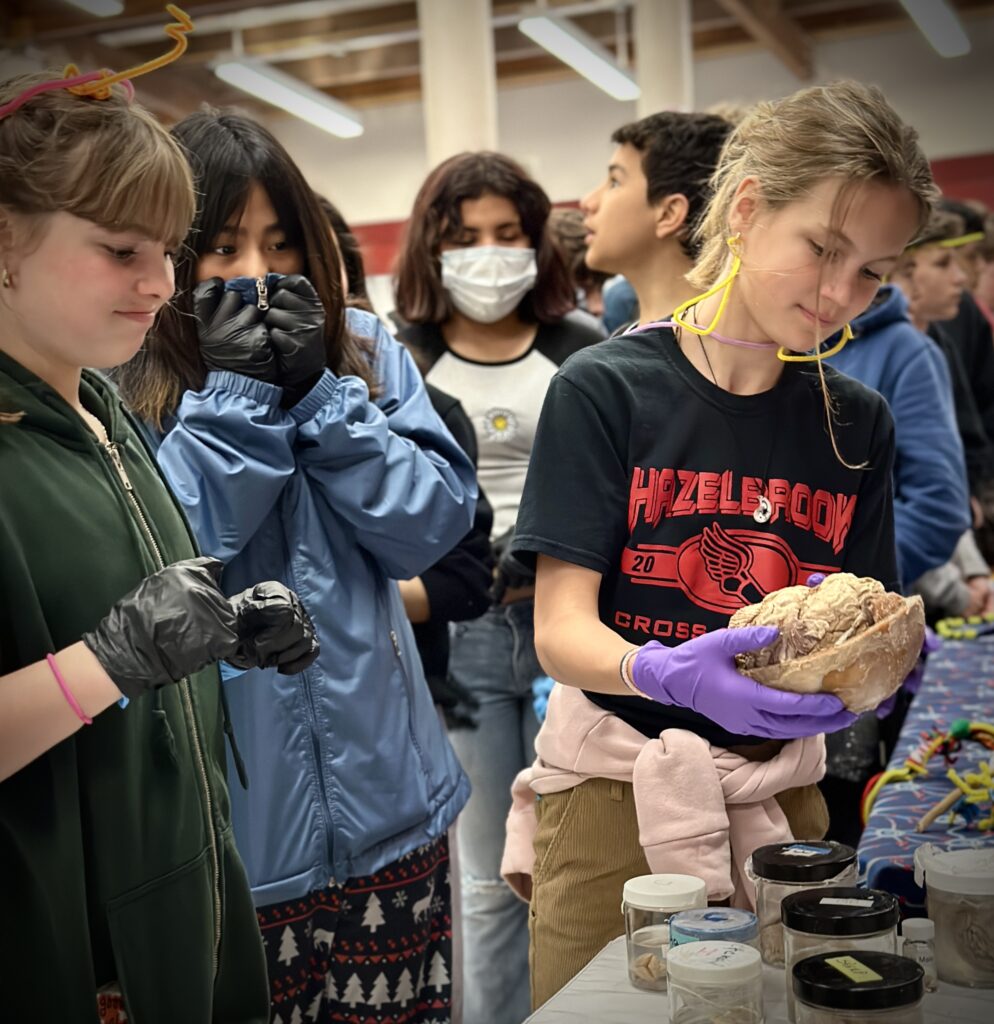
People that know more than one language think differently than monolingual people. There are different pathways that have been formed due to experiencing life in different languages. The brain works hard to shift back and forth between languages, a task that becomes easier with practice.
Language networks in the brain
There are a few different parts of the brain that work together for us to use language.
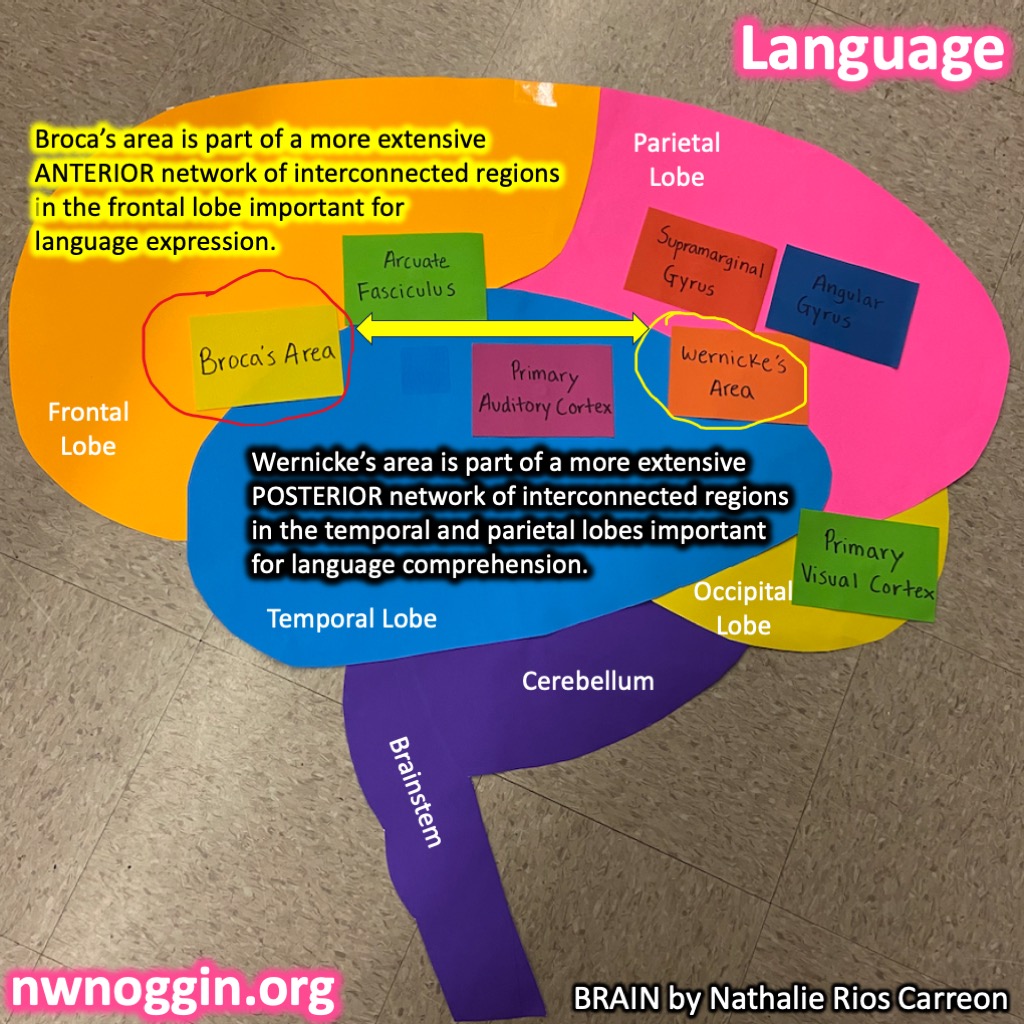
Hearing a language arrives initially arrives, for many, through the primary auditory cortex in temporal lobe. Wernicke’s area, another superior temporal region, is involved in the understanding of language.
Wernicke’s area is part of a larger, more distributed network of regions in the posterior part of our brain that lets us comprehends language.
Damage to Wernicke’s and some connected posterior brain areas doesn’t generally affect how you express language. Your speech, or your signing and writing may remain easy to produce (or fluent). But an injury here does often impact your ability to use language to communicate with others. Words and sentences coming out of your mouth, or the mouths of others, might not make sense.
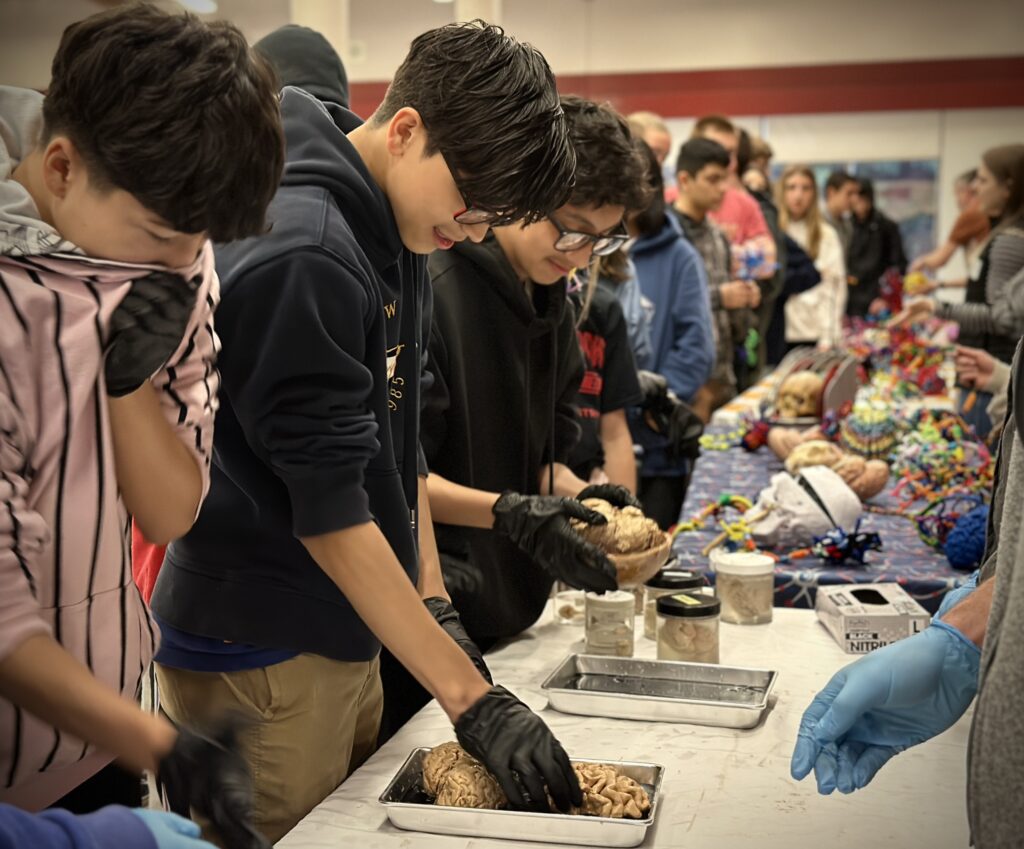
The arcuate fasciculus is a curving (“arc-ing”) band of white matter (long range axonal wires) that connects Wernicke’s area with another cortical region in the frontal lobe known as Broca’s area.
Broca’s area is part of another much more extensive anterior network of interconnected regions essential for language expression. Damage to Broca’s doesn’t necessarily affect our understanding of language, but can dramatically impair our ability to communicate using speech, sign or writing.
LEARN MORE: Reworking the language network
LEARN MORE: The Margins of the Language Network in the Brain
LEARN MORE: An investigation across 45 languages and 12 language families reveals a universal language network
LEARN MORE: Engagement of Language and Domain General Networks during Word Monitoring in a Native and Unknown Language
LEARN MORE: Resting Functional Connectivity of Language Networks: Characterization and Reproducibility
The benefits of multilingualism
Being bilingual or multilingual has many important benefits, confirmed by research.
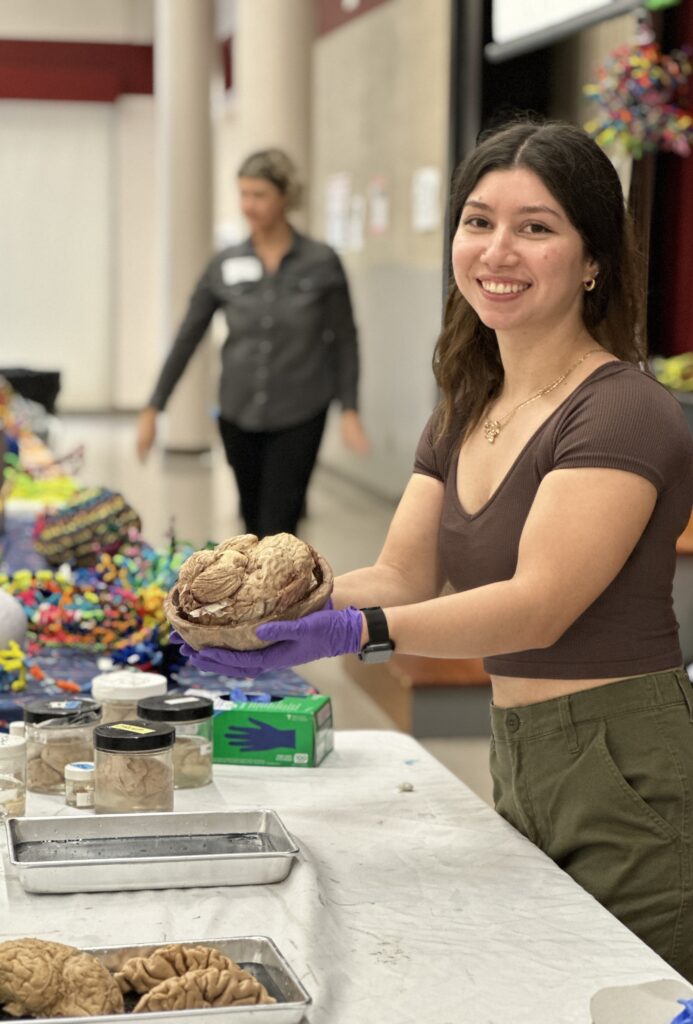
Bilingualism/multilingualism improves our ability to communicate, our multitasking skills, executive function, memory retention, selective attention and creativity. It can even help protect against neurodegenerative disorders like Alzheimer’s Disease.
Knowing different languages removes language barriers, and allows you to communicate with more people. You are more likely to encounter new perspectives and ideas, and this may help you develop and maintain a broader appreciation of your community, and the world.
Speaking two or more languages helps you multitask more effectively than monolinguals, and you retain cognitive function as you age, both delaying dementia and helping you manage it better should your brain be affected by it.
You can also code switch, which is what your brain does when it goes back and forth between languages. If you don’t understand something in one language then you quickly switch to another to try to understand in that language instead. This flexibility improves cognition. The brain naturally looks at things from different perspectives, and therefore you end up seeing and understanding more.
Speaking more than one language also makes one better at selective attention because constantly having to switch back and forth between languages improves your ability to inhibit certain responses and enhance others, improving your ability to concentrate with more precision.
Growing up speaking both Spanish and English has helped me in so many different ways, not only in school, but in my everyday life.
I constantly notice my own code switching, as I try to comprehend things in one way, and then another. I recently started learning French and now I find my brain detecting aspects of that language that others overlook. I’ve always been pretty good at multitasking which I’m sure comes from being multilingual.
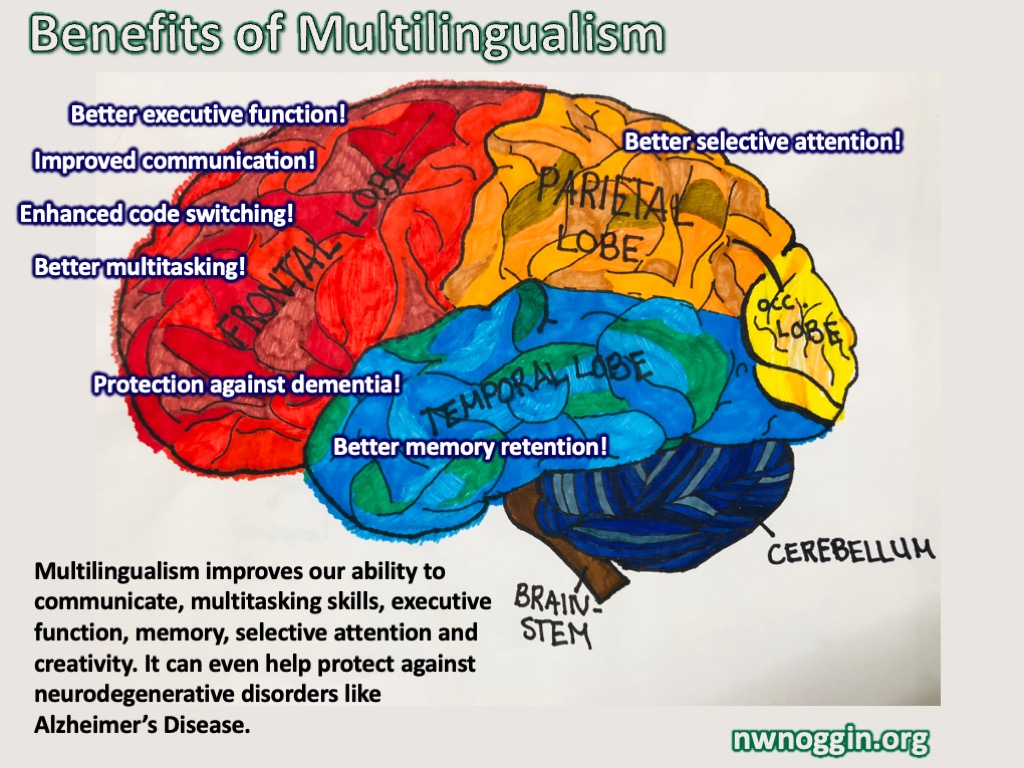
LEARN MORE: Bilingual Effects in the Brain
LEARN MORE: The Cognitive Benefits of Being Bilingual
LEARN MORE: Consequences of multilingualism for neural architecture
LEARN MORE: The Benefits of Multilingualism to the Personal and Professional Development of Residents of The US
LEARN MORE: Intensity of Multilingual Language Use Predicts Cognitive Performance in Some Multilingual Older Adults
LEARN MORE: Predicting multilingual effects on executive function and individual connectomes in children: An ABCD study
LEARN MORE: The Effect of Code-Switching Experience on the Neural Response Elicited to a Sentential Code Switch
LEARN MORE: Bilingualism and creativity across development: Evidence from divergent thinking and convergent thinking
LEARN MORE: Bilingualism and creativity: Benefits from cognitive inhibition and cognitive flexibility
These are only a few of the amazing benefits that multilingualism brings you. I thank my parents for teaching me Spanish first in a country where the primary language is English. I think it’s so beneficial that I hope to do the same with my kids one day.


